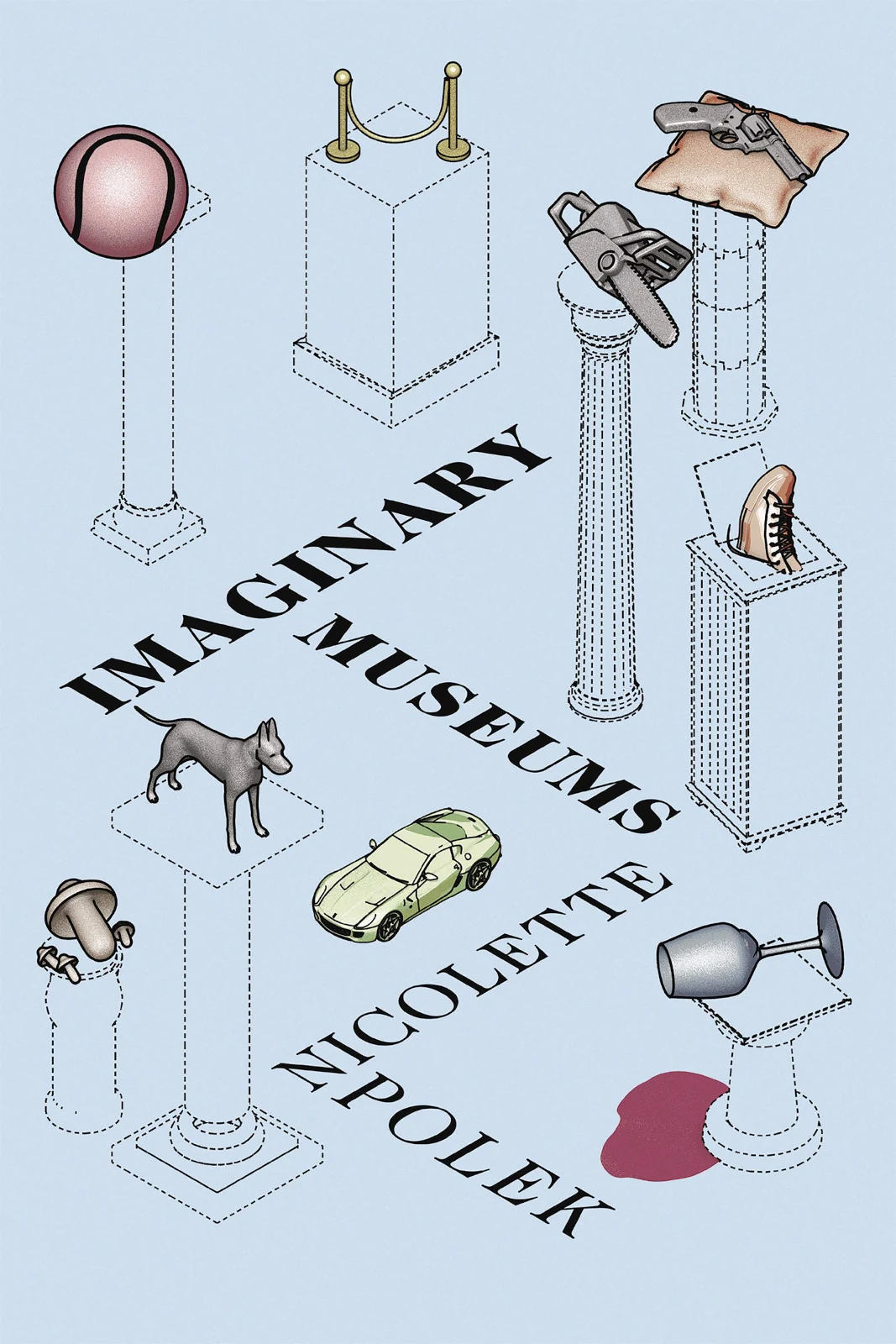
Eerie Eloquence: A Review of Imaginary Museums by Nicolette Polek
Words By Jaclyn Morken
Published January 14, 2020 by Soft Skull Press
I’m a big fan of ‘weird.’ My favorite stories tie together the uncanny with strong characters I can connect with. I was fortunate enough to find this exact mixture in Nicolette Polek’s fascinating debut short story fiction collection, Imaginary Museums. The collection is aptly named: it is, quite simply, imaginative. Polek invites us to dive headfirst into the bizarre, and swim through a host of engaging characters with the strangest of experiences and lives.
Polek takes us through four sections of brief, surreal fictions with an assuredness indicative of her skill as a writer. Her characters—often nameless, with few (if any) physical characteristics outlined—shine with unprecedented strength, and resonated with me strongly. A distrustful woman with a personal rope barrier, a mathematician with a glass house, a seamstress who “decides to give up people”—the collection features characters dealing with love, insecurity, relationships, grief, and growth.
In the title piece, we find recently-divorced Annie, thoroughly dissatisfied with her life but lacking the courage to leave her small town. The prospect of visiting the Air-Conditioning and Refrigeration Museum in New York City invigorates her with a new passion—but what is she to do when she learns it does not exist?
In “The Dance,” an uncommunicative couple wants to go dancing, but will only go if the other insists first. “Thursdays at Waterhouse” brings us a discontented clerk, whose clothes are repeatedly stolen from the Waterhouse—the only place he can find contentment. And in “Love Language,” a plane full of people find themselves “somewhere that should no longer be there.”
Characters’ identities are often secondary to their present emotions, which is why, funnily enough, the characters resonate. The minimalist characterization often allows readers to insert themselves into these moments—these insecurities and anxieties, these hopes and determinations—and experience them firsthand. In my personal favorite, “Field Notes,” Erica desperately tries to forget her responsibilities long enough to take a relaxing walk, but the mounting sense of being watched parallels her growing anxiety over her neglected work. I felt my own unease escalate alongside hers and had connected with this character by the story’s second page.
The whole collection reads like a series of snapshots, each story a quick dive into seemingly unrelated characters and scenarios. The stories rarely share any similarities in form or content, ranging in length from less than one page to almost eight, and frequently shifting between points of view. As a result, each proceeds at a rapid pace—until each ending stuns like a sudden drop.
I can’t say I understood every story on first read. I often finished with a question: “What is this supposed to mean?” And yet, each piece left me with some visceral emotion strong enough to keep it in my mind. Sometimes the purpose of the story seems to be simply to express a particular feeling elicited by a particular moment. And realizing that led me to wonder whether the collection is a representation of humanity itself. Unpredictable, often bizarre, but suffused with notions of hope, longing, ennui, love, and anxiety.
Polek’s outrageous concepts are infused with heart, and therein lies the power of this collection: her words at once chill and ache, because she renders each character and situation with close and careful attention. The result is often dark, but also sharply poignant.
So, take a foray into these weird yet wonderful glimpses into humanity–I guarantee you’ll be thinking about them long after you close the book.